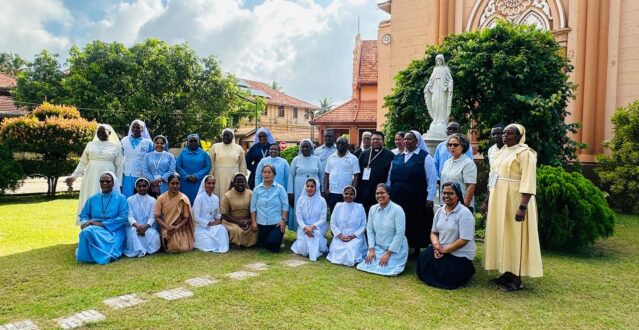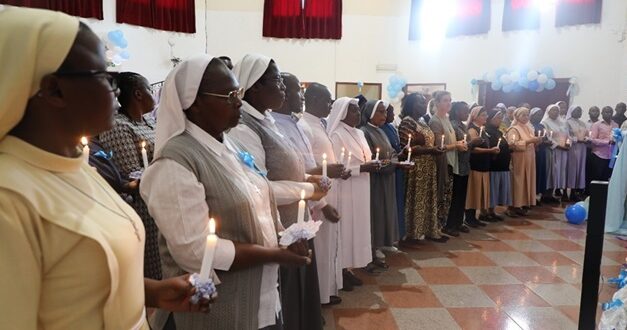“The child, for the full and harmonious development of his or her personality, should grow up in a family environment, in an atmosphere of happiness, love and understanding.” Preamble to the United Nations Convention on the Rights of the Child
The family is the fundamental social unit of all modern societies. It is the base from which we learn to communicate, empathize, compromise, and adapt within vital structures. However, many families in our global home suffer from painful and traumatic experiences such as homelessness, violence, poverty, and hunger. Many experience these situations simultaneously, which leads to the separation of children from loving parents and caregivers. These children can end up institutionalized, in foster care systems, or in other alternative childcare scenarios, but none of these options is a sustainable replacement for the family unit.
Given the adverse impacts of institutionalization on children’s developmental outcomes and well-being, it is essential that all of us work toward reducing the number of children in alternative care and reunite children with their families when possible. An estimated 2.7 million children up to 17 years could be living in institutional care globally. The Lancet in 2020 uses 2015 data and estimates the number of institutionalized children worldwide to be around 5.4 million. Ending institutionalization is a human rights priority. Thus, the work of Catholic Care for Children is guided by the following four very important international frameworks specifically relating to children.
The United Nations Convention on the Rights of the Child (UNCRC)
The UN Convention on the Rights of the Child is an important agreement by countries that have promised to protect children’s rights. It also explains who children are, all their rights, and the responsibilities of governments. All the rights are connected, they are equally important, and they cannot be taken away from children. The document on the Rights of the Child is comprehensive and internationally binding. It was adopted by the UN General Assembly in 1989 and is the most widely ratified human rights treaty in history: the Holy See joined 149 states in ratifying the UNCRC. Below are the four general principles of the convention:
- That all rights guaranteed by the convention must be available to all children without discrimination of any kind (Article 2)
- That the best interests of the child must be a primary consideration in all actions concerning children (Article 3)
- That every child has the right to life, survival, and development (Article 6)
- That the child’s views must be considered and taken into account in all matters affecting her or him (Article 12)
The UN Guidelines for the Alternative Care of Children
The Guidelines for the Alternative Care of Children emerged from a recognition of significant gaps in the implementation of the UNCRC for millions of children worldwide who are either without or at risk of losing parental care. The international community has therefore come together and developed these Guidelines for the Alternative Care of Children.
The guidelines provide a framework for ensuring that governments need to fulfill children’s rights to quality care in families of origin and in alternative care. They outline the need for relevant policy and practice with respect to two basic principles: necessity and appropriateness.
At the heart of necessity is the need to support children so they can remain with and be cared for by their families. Removing a child (including children with disabilities) from his or her family should be a last resort, and before any such decision is taken, a rigorous participatory assessment is required.
Concerning appropriateness, the Guidelines for the Alternative Care of Children define a range of suitable alternative care options. Each child in need of alternative care has specific requirements with respect to the need of the care. These needs include short- or long-term care and keeping siblings together. The care option chosen has to be tailored to the individual needs of the child. The suitability of the placement should be regularly reviewed to assess the necessity of providing alternative care and the viability of potential reunification with the family. The guidelines emphasize the importance of promoting parental care and preventing 20 family separation. The spirit of the guidelines is deeply rooted in the work of the Catholic Care for Children movement.
The UN Sustainable Development Goals
The UN Sustainable Development Goals (SDG) are another important framework for the work of Catholic Care for Children. The goals outlined in the SDGs cannot be achieved without realization of children’s rights. They are universal in scope, and their call to leave no one behind puts the world’s most vulnerable, including children, at the top of the agenda. All the goals are inextricably linked to human rights, and to the human rights of children specifically.
A critical part of meeting the targets in the SDGs is focusing on the family. The importance of the family is reflected in many national public policies. In 2010, former UN Secretary General Ban Ki-Moon stated that “the very achievement of development goals depends on how families are empowered to contribute to the achievement of those goals. Therefore, policies focusing on improving the well-being of families and children are certain to benefit development.” Additionally, in 2009 the UN Permanent Observer from the Holy See highlighted the importance of parental and familial care for children before the UN General Assembly Third Committee. Despite these sentiments, global disaggregated data on families is lacking. This prompted Ban Ki-Moon, in 2014, to call on governments and relevant stakeholders to support data collection and research on family and children’s issues.
UNCRC annual resolution
Each year, the UN General Assembly adopts a resolution on the Rights of the Child that focuses on different topics. In 2019, the UN resolution for the first time centered on children without parents. The Resolution on the Rights of the Child Focusing on Children Without Parental Care (A/RES/74/133) calls for governments to recognize the rights of children who have lost or are at risk of losing parental care. It acknowledges that children without parental care are more likely to experience human rights violations than are other children, and it provides recommendations regarding alternative care for children.
The resolution recommends that governments adequately prepare young people in alternative care for integration into society and independent living when they age out of the system. It also emphasizes the importance of including youth in decision-making processes that are relevant to them. This resolution urges states to strengthen child welfare and child protection systems, improve care and reform efforts, and prevent the unnecessary separation of children from their parents. This resolution builds on the Guidelines for the Alternative Care of Children and relevant regional conventions such as the African Charter on Human and Peoples’ Rights.
Assessing Policies Based on International Standards
The following points can be considered when assessing national and congregational policies in light of international standards.
What aspects of the international framework of care are reflected in the care sector of my country’s or religious congregation’s ministry on care for children. Do the national policies of my country and religious congregation:
- Realize children as rights holders and realize their rights to grow up in families?
- Realize the removal of a child from the family should be an action of necessity and last resort?
- Ensure the availability of suitable alternative care options appropriate to the individual needs of children requiring care and protection?
- Include a clear national and congregational plan for the deinstitutionalization of the care system and the development of family-based and other appropriate alternative care options?
- Realize that poverty alone is never the primary justification for children being removed from their family and placed in alternative care?
- Promote and support the development and implementation of a range of appropriate family support services as preventive measures to ensure children can be cared for within their families?
- Have appropriate procedures, guidance, and standards to ensure effective enforcement and oversight?
This article is from the publication “A Family for Every Child.” Read the full publication here.



